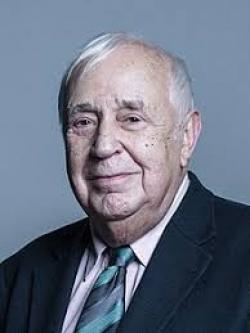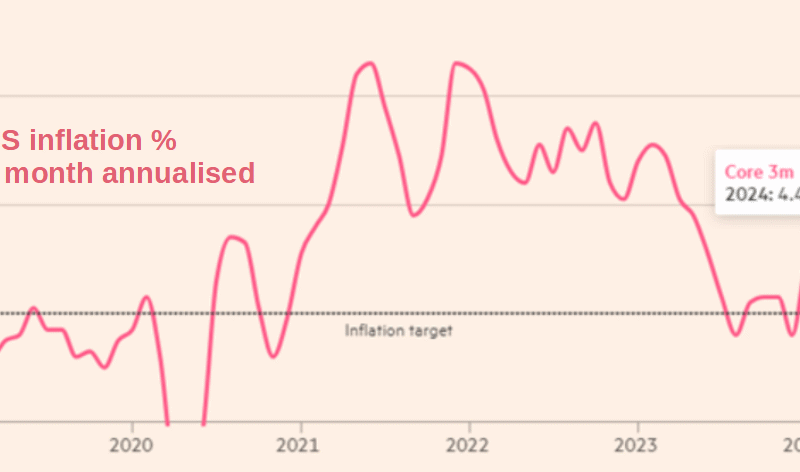Lord Skidelsky and Keynes’ big idea
By Michael Roberts
Last night, Lord Robert Skidelsky spoke to the UK’s Progressive Economy Forum (PEF) in London. He was promoting his new book Money and Government: A Challenge to Mainstream Economics. Its aim, the blurb says, is “to familiarise the reader with essential elements of Keynes’s ‘big idea’.“ The PEF is an economics think tank composed of just about all the top British Keynesian and leftist economists (but no Marxists). At this highly promoted meeting was John McDonnell, the Labour spokesperson on finance and economics, where he gave a favourable response to Skidelsky’s ideas.
Lord Robert Skidelsky is emeritus professor of economics at Warwick University, England. He is the most eminent biographer of John Maynard Keynes and is a firm promoter of his ideas. Skidelsky is lauded by leftist Keynesians, even though his politics are as unreliable for the left as Keynes’ were. Originally a Labour Party member, he left that party to become a founding member of the renegade Social Democratic Party, which ensured the defeat of the Labour Party in the 1983 election. He remained in the SDP until it fell apart in 1992, but he was rewarded for his part in defeating Labour with a life peerage as Baron Skidelsky by the then Conservative government.
Indeed, after that he became a Conservative and was chief opposition spokesman for the Conservatives in the Lords when the Blair Labour government was in office. He was chairman of the right-wing pro-privatisation and neo-liberal reform think-tank, the Social Market Foundation between 1991 and 2001. In 2001, he left the Conservative Party for what is called the ‘cross benches’ in the House of Lords (ie no party). Despite this, Skidelsky is regarded by left Keynesians as ‘one of them’. Indeed, he sits on the council of the PEF.
I have not got access to a review copy of his new book, but his speech last night and an article that Skidelsky wrote back in 2016 criticising mainstream economics probably sums up the views in the book. This is what I said then:
https://thenextrecession.wordpress.com/2016/12/25/the-system-is-broken/
In a more recent article in the Guardian newspaper, to promote his new book, Skidelsky starts from the premise (like Keynes) that capitalism is the only viable and best mode of production and social relations possible – the alternative of a socialist system of planning based on public ownership is anathema to him (as it was to Keynes). But capitalism has fault-lines and successively recurring slumps and depressions reveals that. So Skidelsky’s job (as Keynes also saw it) is to save capitalism and manage these recurring crises to reduce or minimise their impact.
Global financial crash “unanticipated”
In his article, Skidelsky claims that the global financial crash and “the worst global downturn since the Great Depression of 1929” was “almost entirely unanticipated.” Well, it was by mainstream economics and nearly all Keynesians, but as I have shown elsewhere, it was predicted by some heterodox economists, including Marxists.
Nevertheless, Skidelsky asks what we can learn from this financial disaster, so we can avoid it next time (yes, it’s going to happen again). He says, “prevention is far better than cure.” But by prevention he does not mean “trying to stop the semi-regular fluctuations of the business cycle.” There is nothing we can do about that under capitalism. No, the job of the monetary authorities and governments is “to dampen, if not altogether prevent, these fluctuations”. And in doing so, we can avoid “looming state bankruptcy, or worse, state control over the economy.”(!)
Then he offers the usual mainstream prescriptions of monetary easing and fiscal spending (particularly in infrastructure). But he reckons that the scale of last disaster will require “far more ambitious thinking”. You see, you just cannot tell when it will happen again because “as John Maynard Keynes taught, the future is uncertain” (Really, I never guessed – MR).
Skidelsky then states that the reason for the weak recovery after the end of the Great Recession was ‘austerity’. If only governments had expanded spending and run budget deficits, then economies would have been restored. This is the same argument that American Keynesian Paul Krugman just offered on his blog and is the mantra of all Keynesian explanations of the Long Depression. But regular readers of this blog know that there is plenty of evidence that increased government spending where it was applied (Japan) did not revive the economy; and there is little or no correlation between government spending and growth in the major economies. That is because under a capitalist economy, unless the profitability of capital rises, no amount of fiscal stimulus will work.
Skidelsky wants to ‘manage’ capitalism better
But what does Skidelsky think we should do? First, we must break up the big banks into smaller units and “institute controls over the type and destination of loans they make.” The idea of breaking up the banks is presented because some banks are now so large that if they fail, they would bring down the whole financial system. But this ‘solution’ would simply mean that smaller banks would continue to conduct their sleazy, speculative, fraudulent activities. Oh, and I forgot: we are going to control (regulate) what they do. Well, that worked well last time. There is no mention of the obvious solution: public ownership of the major banks with democratic control and accountability to establish a banking system that is a public service to households and small businesses, not acting as ‘financial weapons of mass destruction’.
The second thing Skidelsky wants to do is to ‘manage’ capitalism with proper fiscal and monetary policies. Well, such Keynesian policies failed in the 1970s, when the profitability of capital collapsed, and advanced economies suffered a series of severe recessions (1974-5, 1980-2). That’s why Keynesian macro-management was dropped by the strategists of capital. In his speech, Skidelsky argued that it was not Keynesian policies in the 1970s that failed but the deregulation of finance.
I am unaware that such ‘deregulation’ was adopted then. That came only after the profitability crises of the 1970s and early 1980s. Deregulation was a response to the problems of capitalist production not the cause. And ironically, Skidelsky ditched Labour just at this time to join the Social Democrats, who supported deregulation and neo-liberal policies and broke with Labour because they feared the take-over of the party by Tony Benn (the precursor of Corbyn)!
Anyway, Skidelsky wants to be a little more ambitious this time. His aim is not to “fine tune the business cycle” but instead “maintain a steady stream of public investment amounting to at least 20% of total investment to offset the inherent volatility of the private economy.” This smacks of Keynes’ famous call for the ‘socialisation of investment’ that the ‘master’ (Skidelsky’s phrase) advocated as a last resort in order to revive the capitalist economy when monetary easing and government spending failed in the 1930s.
Actually, in the ‘war economy’ of the 1940s, Keynes was much more radical than Skidelsky and proposed that up to 75% of total investment should be public, reducing the capitalist sector to a minority (Chinese-style) Of course, that was during the war and no Keynesian now proposes to wipe out the dominance in investment of the big banks and the capitalist sector. Skidelsky’s “20%” amounts to about 3% of GDP, the same target that the Labour leadership is proposing in its economic strategy. But as I have explained in many previous posts and papers, that leaves the capitalist sector investment up to five times larger and so the profitability of capital will remain the driving force for growth. And that means recurring crises and lower growth.
Reverse the rise in inequality
Ironically, up to now it has been President Trump who has (unknowingly) adopted apparently Keynesian prescriptions, with his tax cuts for the rich. Two years ago when Trump also proposed a programme of infrastructure, Skidelsky got very excited. He commented ““As Trump moves from populism to policy, liberals should not turn away in disgust and despair, but rather engage with Trumpism’s positive potential. His proposals need to be interrogated and refined, not dismissed as ignorant ravings.” But since then nothing has come of Trump’s infrastructure promises. All that has happened is that corporate profits are up, the stock market is booming, inequality has rocketed further, real wages are stagnant and public services are being slashed. So much for Trump’s ‘positive potential’.
Third, Skidelsky wants to “reverse the rise in inequality”; but not because it is unjust or the result of the exploitation of labour by capital. We need to reduce inequality so that wages are sufficiently high to sustain “the consumption base of the economy”. Otherwise it “becomes too weak to support full employment.” Skidelsky seems to think that the cause of crises are low wages and consumption – actually something rejected by Keynes – he thought it was a low marginal efficiency of capital and too high interest rates. Moreover, the argument that rising inequality is the cause of crises rather than the result of neoliberal policy measures has been disproved. But this argument is presented in Keynesian circles all the time.
Finally, there is the political. You see, says Skidelsky, unless we act along these lines to save capitalism, there is the danger of the rise of ‘populism’ and “the flight of voters toward political extremism.” Hopefully, he only means the rise of nationalist and semi-fascist forces of the right. But I think he also means the forces of socialism on the radical left. And they are just as much an enemy of the ‘liberal’ Skidelsky as the ‘extreme’ right (just as it was for Keynes). Lord Skidelsky remains an interesting political bedfellow for the labour movement – just as Lord Keynes did in the 1930s.
The PEF website has a quote from Keynes that they see as paramount. “The ideas of economists and political philosophers, both when they are right and when they are wrong, are more powerful than is commonly understood. Indeed the world is ruled by little else“. I hope the PEF do not really agree with the arrogance of Keynes’ statement that philosophers and economists are the real ‘rulers’ of the world (similar to the autocratic ideas of the ancient Greek aristocrat Plato). I think a better quote for the PEF would be: “Philosophers have hitherto only interpreted the world in various ways; the point is to change it.” (Karl Marx).
September 20, 2018
First published on Michael Robert’s blogsite. For the original, including all links and sources, go to:



